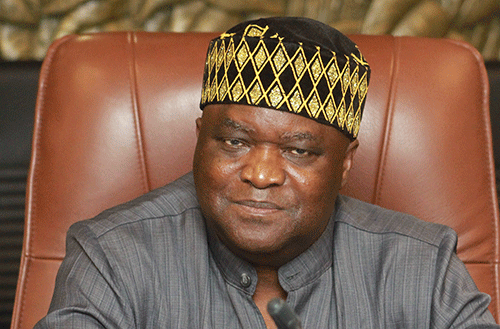Home Affairs minister Albert Kawana says should the proposed visa exemption for Chinese nationals agreement be approved, Namibians will be allowed to directly source goods from China for their own business or use.
Kawana was responding to a notice of questions tabled by the Popular Democratic Movement’s (PDM) member of Parliament, Hidipo Hamata on Wednesday last week in the National Assembly.
Following reports last week, that Kawana proposed visa exemption for Chinese nationals arriving in Namibia, Hamata agitated that the deal will not be fair if the same privilege is not extended to Namibian citizens arriving in China.
But, Kawana argued it will be mutually beneficial for both nations.
“It is my considered opinion that should the agreement be agreed upon in whatever form, our nationals will be allowed to directly source goods from China for their own business or their use. Currently, West Africa is doing that. What will prevent our citizens from doing the same?” he asked.
Kawana said when the country attained independence in 1990, the government, in line with Article 96 of the Namibian Constitution, exempted several countries from visa requirements.
“These first crop of countries were mainly from Europe and North America. The main objective was to promote tourism. Unlike the new approach which we have taken regarding visa agreements with specify conditions, no formal agreements were entered into with the first countries,” he said.
He defended that currently, 53 countries’ nationals are exempted from visa requirements regardless of the type of passports they hold.
Those countries are Angola, Armenia, Australia, Austria, Azerbaijan, Belarus, Belgium, Botswana, Brazil, Canada, Cuba, Denmark, Finland, France, Germany, Iceland, Indonesia, Ireland, Italy, Jamaica, Japan, Kazakhstan, Kenya Kyrgyzstan, Liechtenstein, Lesotho, Luxemburg, Malawi, Malaysia, Mauritius, Moldova, Mozambique, Netherlands, New Zealand, Norway, Portugal, Russian, Federation, Seychelles, Singapore, South Africa, Spain, Eswatini, Sweden, Switzerland, Tajikistan, Tanzania, Turkmenistan, Ukraine, United Kingdom, United States of America, Uzbekistan, Zambia and Zimbabwe.
In addition to the above-exempted countries, Kawana said 37 countries are exempted from visa requirements for diplomatic and official passport holders only.
These countries are Algeria, Benin, Burkina Faso, Burundi, Cabo Verde, Cameroon, Central Africa Republic, Chad, Comoros, Congo Brazzaville, Cote d’ Ivore, Democratic Republic of Congo, Egypt, Equatorial Guinea, Eritrea, Ethiopia, India, Gabon, Gambia, Ghana, Guinea, Liberia, Madagascar, Mauritania, Niger, Nigeria, Poland, Rwanda, Sao Tome and Principe, Senegal, Sierra Leone, Togo, Tunisia, Türkiye, Uganda, Saharawi Arab Democratic Republic and
Venezuela.
The politician added, about 56 countries have been recently added to countries whose nationals can obtain visas on arrival.
“These include countries listed above whose nationals are holders of ordinary passports since diplomatic and official passports are exempted,” he said.
The minister stated discussions regarding visa exemptions between the two countries were indeed initiated in 2019.
However, due to the impact of Covid-19, these discussions were postponed. But, adamantly state that visa exemptions are mutually beneficial for both nations.
Hamata wanted to know what specific conditions and terms are included in the proposed visa exemption agreement between Namibia and China.
He also wanted the minister to clarify concerns raised by officials in the home affairs ministry regarding the relationship between senior ministry officials and the Chinese government. To that, Kawana denied knowledge of unhappy officials.
“I am not aware of any staff member of our ministry who is not happy,” he said.
However, agreed that Namibians are being mistreated when they travel to other countries.
“It is common cause that some of our nationals are being mistreated when they travel to certain countries. They are viewed as criminals regardless of the type of passports they hold. The treatment is the same whether they are in transit or not,” he added.



